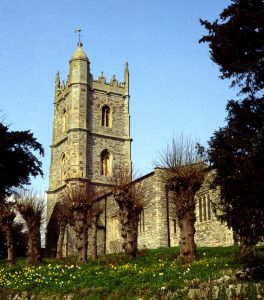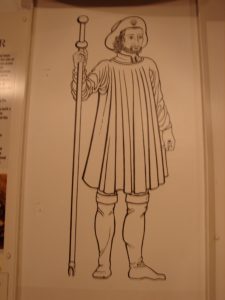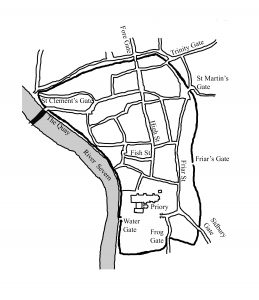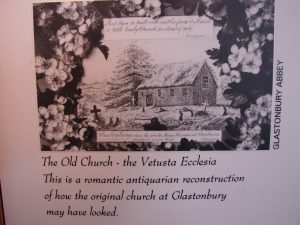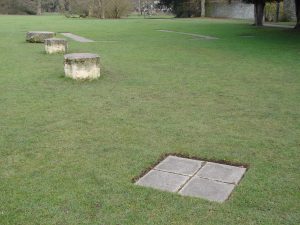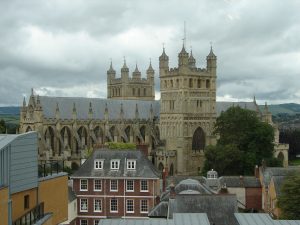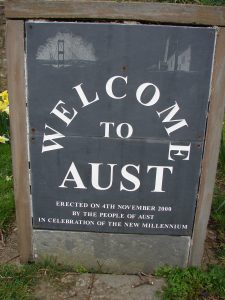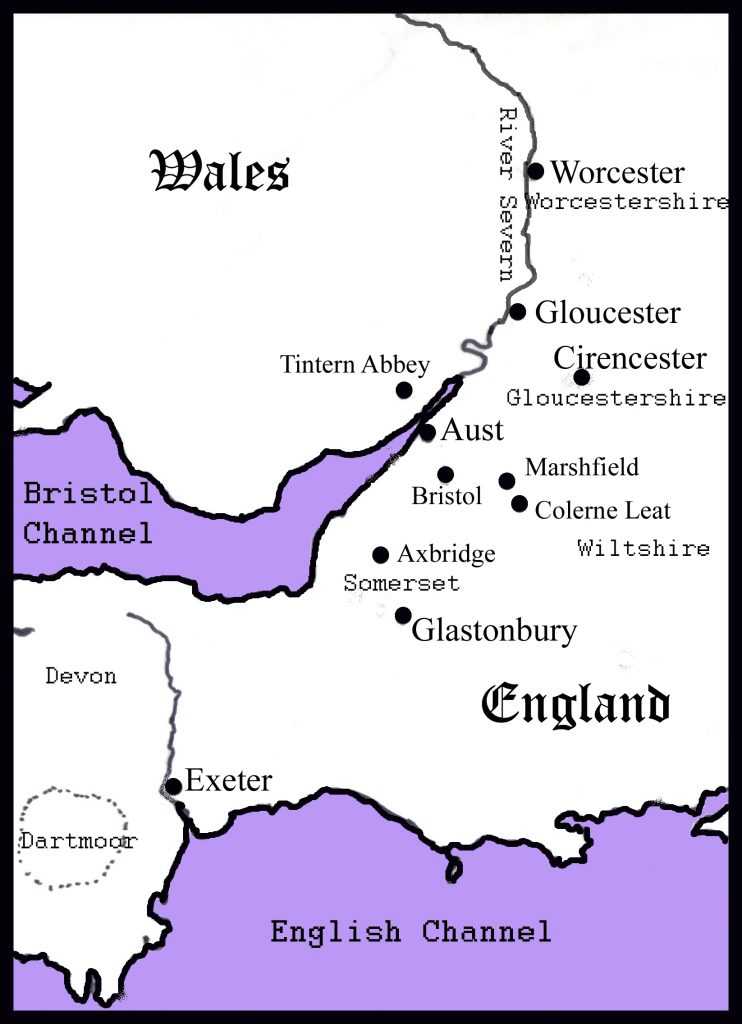The Church was an integral part of everyday life in medieval England. Author Barbara Tuchman, in her book A Distant Mirror, describes Christianity as the matrix of medieval life. Membership in the Church was not a matter of choice, it was compulsory for everyone. I am attempting to write historical fiction in my Lady Apollonia West Country Mysteries set in the late 14th, early 15th centuries in England. Simply to be true to the times and places, the church plays a major role in each of my stories because it was dominant in peoples’ lives.
Lady Apollonia and her affinity are devout believers who regard the church as central to their lives. Worship and prayer are an integral part of their daily existance. As the Lady travels around the West Country, each of her residences has a chapel for her use as well as her affinity. The conversion of space in Exeter House for such a chapel is described in Plague of a Green Man set in Exeter in 1380.
Several members of her affinity are clergy. Friar Francis came to be her household chaplain while Brother William, a priest and former monk, serves as the Lady’s almoner. Within her own family, her middle son, Thomas, becomes a priest faithfully ministering to his parish church in Axbridge, Somerset, while her youngest son, David, is called to leave his home in order to join the monastery at Tintern Abbey.
England in Apollonia’s time was largely illiterate and very dependent on the clergy for direction and instruction. Clerics ran the gamut from devoutly ministering Christians to selfish wealth-seeking villains which are described by Geoffrey Chaucer in the religious characters he includes among his Canterbury pilgrims.
Some of the villains in the Lady Apollonia Mysteries have been monks or priests who came from noble families who would not inherit their father’s title or lands. An important option for aristocratic families was to send a second or third son into the Church where, without the slightest calling to the religious life, such men could find wealth and political power as churchmen.
The parish church in Lady Apollonia’s home village of Aust is pictured below.